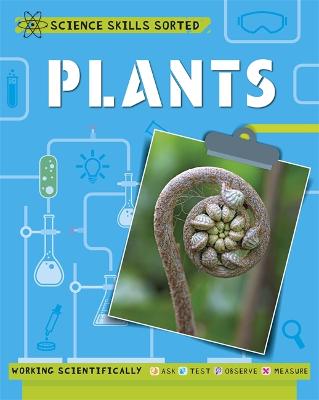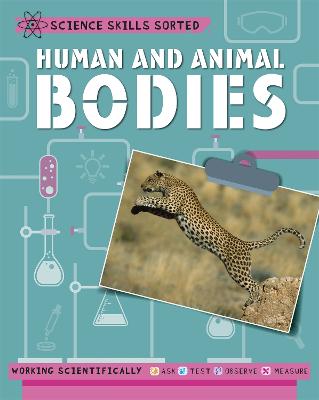Science Skills Sorted!
2 total works
Plants are brilliant things to study scientifically. They grow, reproduce, make their own food and some can even defend themselves. In Plants you'll delve into the science behind these marvels of the natural world by conducting ten investigations or experiments using the ATOM method - Ask, Test, Observe & Measure - to ensure you're working just like a professional scientist. Work out how leaves function, the strength of the acid in a nettle, and whether plants can grow in cola! At the end of the book, scientific guidelines explain why scientists do things a certain way and the things they look out for or try to avoid.
Science Skills Sorted are six topic books for children aged 8+ studying KS2 science. The ATOM method is designed to help readers work scientifically as they are taught to in the classroom, and each of the investigations is accompanied by explanatory text to uncover facts about the topic. A range of experiments in each book means that while some may need a little more equipment than others, there are plenty experiments that are cheap and accessible, using objects easily found in the classroom or at home.
Bodies are brilliant things to study scientifically. In Bodies you'll delve into the science behind these marvels of the natural world by conducting ten investigations or experiments using the ATOM method - Ask, Test, Observe and Measure - to ensure you're working just like a professional scientist. Work out how strong bird bones are, why being blind means bats rely on other senses and how the shape of a body determines the environment it thrives in! At the end of the book, scientific guidelines explain why scientists do things a certain way and the things they look out for or try to avoid.
Science Skills Sorted are six topic books for children aged 8+ studying KS2 science. The ATOM method is designed to help readers work scientifically as they are taught to in the classroom, and each of the investigations is accompanied by explanatory text to uncover facts about the topic. A range of experiments in each book means that while some may need a little more equipment than others, there are plenty experiments that are cheap and accessible, using objects easily found in the classroom or at home.

